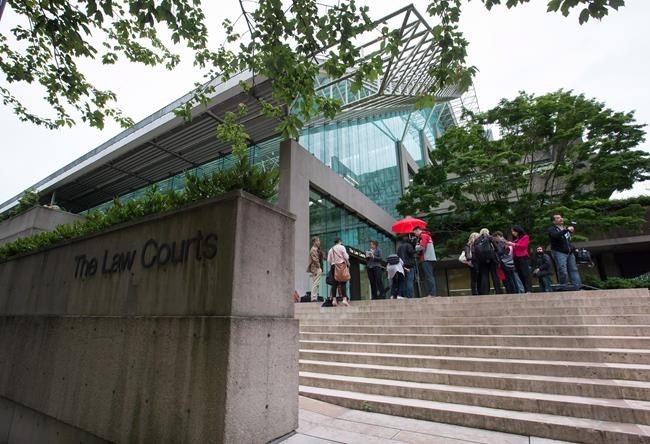VANCOUVER — Lawyers for Ibrahim Ali, who's accused of murdering a 13-year-old girl in a Burnaby, B.C., park six years ago, have been trying to cast doubt on the reliability of cellphone data suggesting his phone was in the vicinity at the time of the killing.
The jury in the British Columbia Supreme Court trial has heard testimony over the past two weeks about cellphones associated with Ali and the girl, who cannot be identified because of a publication ban.
Don Calpito, an expert in cellular coverage with Telus Communications, says things like tall buildings or capacity issues might degrade a signal and cause a phone to connect through different cell towers.
The jury heard earlier this week from a Bell employee that the number police say belonged to a phone Ali was carrying when he was arrested made calls that were connected through a tower near Central Park on the night the girl was found dead there in July 2017.
David Mak, a senior investigator with Rogers Communications, meanwhile testified that the Bell phone Ali was carrying never had any contact with two phones whose Rogers accounts were paid for by the girl's mother.
The various experts have all testified that there's no way to tell from connection data exactly where a person is when they make a phone call, and while the closest tower is usually used multiple factors can affect that choice.
Mak testified that towers in urban areas like Burnaby usually have a range of about three kilometres.
In May, Ali pleaded not guilty to the first-degree murder of the girl, whose body was found just hours after her mother reported her missing.
The Crown has told the jury they will hear evidence showing the girl's killing was random, but DNA results would prove Ali sexually assaulted the girl and cellphone records would place him and the victim in or near the park on the day she died.
They said evidence would show the girl was passing through the park when she was dragged off a pathway into the forest by Ali, sexually assaulted and strangled.
The defence has not yet told the jury its theory of events.
This report by The Canadian Press was first published July 12, 2023.
Ashley Joannou, The Canadian Press




